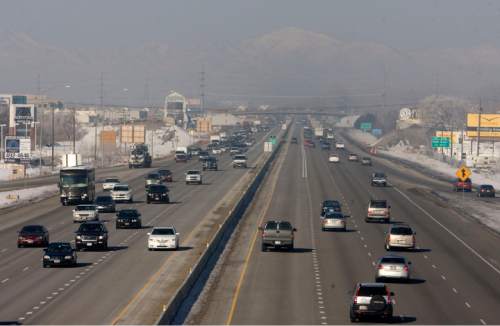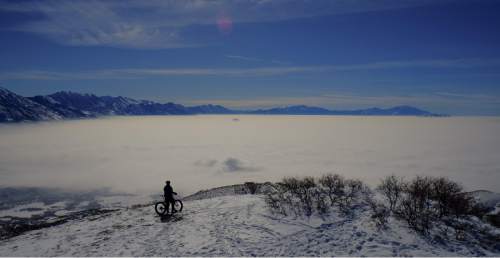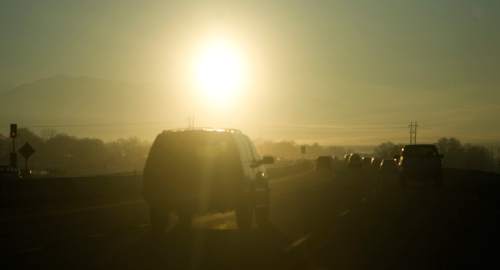This is an archived article that was published on sltrib.com in 2016, and information in the article may be outdated. It is provided only for personal research purposes and may not be reprinted.
As numerous air-quality proposals pile up in the final days of the legislative session, municipal leaders in Utah County have joined the discussion.
The Orem City Council voted unanimously in January for a resolution expressing support for legislation that would "enhance air quality in the city of Orem and the state of Utah." Copies of the resolution were delivered to the House and Senate last week.
According to a letter accompanying the resolution, Orem residents often identify air pollution as one of their greatest concerns. It has also become an economic worry, said Ryan Clark, manager of the city's Economic Development Division.
"We have heard that as businesses have visited Utah while completing site-selection visits, that the air quality has in fact been a turnoff," he said. "It has resulted in Utah being eliminated from their search."
City Councilman Tom Macdonald said the council has also heard that businesses already located in the area express concerns about air quality.
In neighboring Provo, the City Council passed a similar resolution in December, urging the Legislature to adopt the 2015 International Energy Conservation Code and "other possible air-quality enhancements for Utah," according to Provo community-relations coordinator Karen Tapahe.
Orem's resolution originally was intended to express support for a revision of the state building codes, Macdonald said. But the document associated with that proposal was more than 100 pages and the council didn't have enough time to review it. Rather than endorsing a measure it hadn't studied, the council opted to pass a more general resolution.
"It's pretty easy," he said, "to discuss in theory the fact that we ought to have clean air."
State leaders are reviewing several bills involving the energy conservation code. The fastest-moving measure, HB316, proposes to adopt only parts of the code and has drawn criticism from the environmental community. HB121, which would adopt the code in its entirety, has yet to be heard by a legislative committee.
That doesn't mean there's no hope for air-quality legislation, said Rep. Patrice Arent, D-Millcreek.
"Many bills are still in the process and could be voted on in the last week," she said. "Even with my decades of experience in the Legislature, it is impossible for me to predict what will happen. Bills can pop out of [the] Rules [Committee] on the last night, even without a committee hearing in both bodies, and still pass [or fail]."
Macdonald said he hadn't been able to follow air-quality legislation too closely this session, but he believes there are "too many decision-makers" involved, preventing the state from coming to any real solutions.
"It's not an easy thing to fix," he said. "For every argument for it, there's someone who's saying, 'Well, don't force those requirements on me.' We haven't found a way to do it without stepping on toes."
Twitter: @EmaPen







